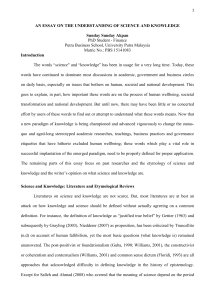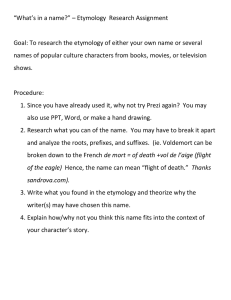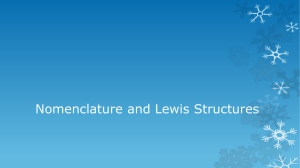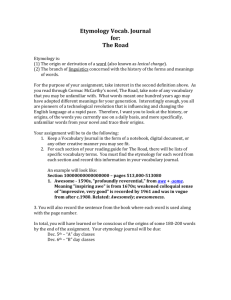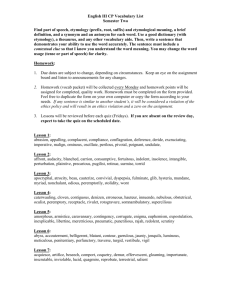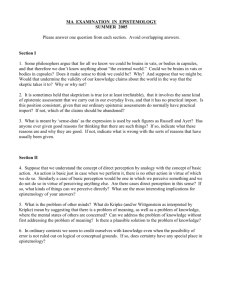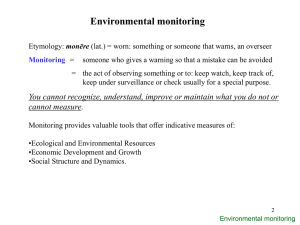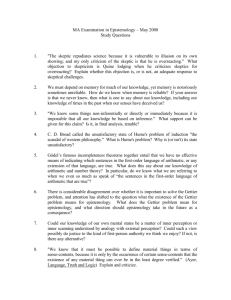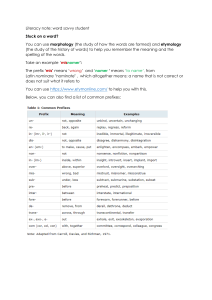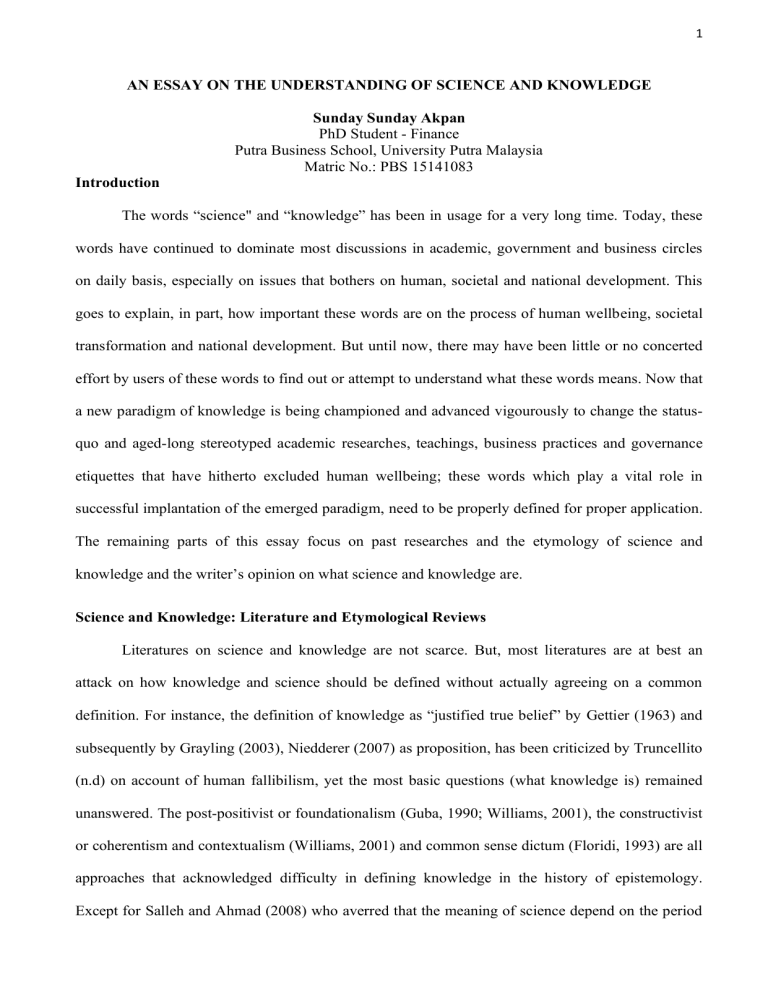
1 AN ESSAY ON THE UNDERSTANDING OF SCIENCE AND KNOWLEDGE Sunday Sunday Akpan PhD Student - Finance Putra Business School, University Putra Malaysia Matric No.: PBS 15141083 Introduction The words “science" and “knowledge” has been in usage for a very long time. Today, these words have continued to dominate most discussions in academic, government and business circles on daily basis, especially on issues that bothers on human, societal and national development. This goes to explain, in part, how important these words are on the process of human wellbeing, societal transformation and national development. But until now, there may have been little or no concerted effort by users of these words to find out or attempt to understand what these words means. Now that a new paradigm of knowledge is being championed and advanced vigourously to change the statusquo and aged-long stereotyped academic researches, teachings, business practices and governance etiquettes that have hitherto excluded human wellbeing; these words which play a vital role in successful implantation of the emerged paradigm, need to be properly defined for proper application. The remaining parts of this essay focus on past researches and the etymology of science and knowledge and the writer’s opinion on what science and knowledge are. Science and Knowledge: Literature and Etymological Reviews Literatures on science and knowledge are not scarce. But, most literatures are at best an attack on how knowledge and science should be defined without actually agreeing on a common definition. For instance, the definition of knowledge as “justified true belief” by Gettier (1963) and subsequently by Grayling (2003), Niedderer (2007) as proposition, has been criticized by Truncellito (n.d) on account of human fallibilism, yet the most basic questions (what knowledge is) remained unanswered. The post-positivist or foundationalism (Guba, 1990; Williams, 2001), the constructivist or coherentism and contextualism (Williams, 2001) and common sense dictum (Floridi, 1993) are all approaches that acknowledged difficulty in defining knowledge in the history of epistemology. Except for Salleh and Ahmad (2008) who averred that the meaning of science depend on the period 2 of science referred and went on to defined it etymologically to mean to “know” or to “understand”, science would have suffered same definitional dilemma like knowledge. Therefore, to define knowledge and determine how we know or understand which is what science means, it is imperative to consider the etymology of theses word. Etymologically, Science means to know or to understand (Salleh and Ahmad, 2008). ‘Know’ is derived from gignoskein meaning "to learn, or to come to know". And knowledge was very early adapted to be the noun equivalent of ‘know’. It will suffice to define knowledge as that which we have come to know or what we know. Now the question is; how do we know? Or come to know? Science connotes how we come to know, i.e. a process of arriving at knowledge. This process can be through sense, perception, reason, emotions, language, intuition, imagination, faith, memory and, tradition (Musgrave, 1993). Thus, science from the beginning of time was a way of knowing or acquiring knowledge and not about objectivity, materiality, physical, natural and empiricism which it has come to be known in the Newtonian-Cartesian explanation of science. Science and Knowledge: The Writer’s Opinion Science was originally the ontological and empirical way of having knowledge. On account that matters are not too straight forward, knowledge is anything we have come to know through science with uncertainty and unjustification (as in tradition where absolute certainty is not required) or with certainty and justification (as in what we can personally verify with our senses). By this, human behavior need not be explained only from purely empirical but also ontological way, as doing so will only lead to incomplete knowledge of real life events. The basis of my opinion is not only on etymology (as they are not definition but explanation of words; Harper, 2015) and dictionaries (as they are artificial repositories, put together well after the languages/words they define; Cortinez, 1986) but on the innate sensory capabilities that are supported by etymological evidences and personal convictions. In summary, knowledge- what we know can be anything and science- how we know, can also be anyhow. This, I think defiles any specific definition which may impose a limit to knowledge and science. 3 References Cortinez, C. (1986). Borges: The Poet According to His Proloques. Fayetteville: The University of Arkansas Press Floridi, L. (1993). The Problem of the Justification of a Theory of Knowledge. Journal of General Philosophy of Science, 24: 205-233 Gettier, E. (1963). "Is Justified True Belief Knowledge?" Analysis, 23: 121-123 Grayling, A. C. (2003). Epistemology. In N. Bunnin and E. P. Tsui-James (eds.), The Blackwell Companion to Philosophy. (37-60). Oxford, UK: Blackwell Publishing Guba, E. (1990). The Paradigm Dialog. London: Sage. Harper, D. (2015), Etymology. Online Etymology Dictionary. Retrieved October 03, 2015, from Dictionary.com website: http://dictionary.reference.com/browse/know Musgrave, A. (1993). Common Sense, Science and Scepticism: A historical introduction to the theory of Knowledge. NY: University Press Niedderer, K. (2007). Mapping the Meaning of Knowledge in Design Research. Design Research Quarterly, 2: 2 (April 2007). Retrieved Oct 3, 2015 from: http://www.drsq.org/issues/drq2-2. Salleh, A. and Ahmad, A. (2008). Human Governance: A paradigm Shift in Governing Corporations. Selangor, MY: MPH Group Publishing Sdn Bhd.: 12-17. Truncellito. D. A (n.d). Epistemology. The Internet Encyclopedia of Philosophy, Retrieved October 03 2015 from http://www.iep.utm.edu/epistemo Williams, M. (2001). Problems of Knowledge: a critical introduction to epistemology. Oxford University Press.
